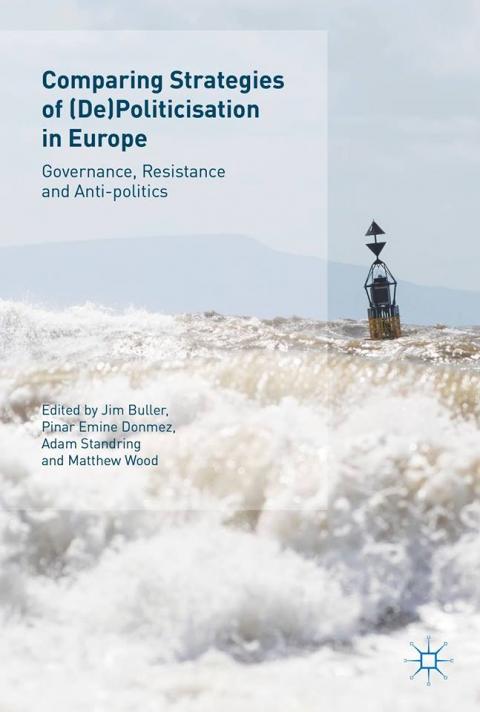Comparing Strategies of (De)Politicisation in Europe. Governance, Resistance and Anti-politics
CPS research fellow Pinar Donmez is one of the editors of the new Palgrave book considering depoliticisation from a comparative perspective, particularly focusing on cases from continental European countries. It investigates how depoliticisation is received by those at which it is aimed, as well as how it is put in to practice, also promotes an interdisciplinary conversation to define depoliticisation as a dynamic and interactive process between government elites and societal groups/movements.
One of our former research fellows and a doctoral candidate at the CEU School of Public Policy, Kata Amon, also contributed a chapter titled 'Revanchism and anti-revanchism in Hungary: The dynamics of (de)politicization and the criminalization of homelessness'.
The book investigates the extent to which depoliticisation strategies, used to disguise the political character of decision-making, have become the established mode of governance within societies. Increasingly, commentators suggest that the dominance of depoliticisation is leading to a crisis of representative democracy or even the end of politics, but is this really true? This book examines the circumstances under which depoliticisation techniques can be challenged, whether such resistance is successful and how we might understand this process. It addresses these questions by adopting a novel comparative and interdisciplinary perspective. Scholars from a range of European countries scrutinise the contingent nature of depoliticisation through a collection of case studies, including: economic policy; transport; the environment; housing; urban politics; and government corruption. The book will be appeal to academics and students across the fields of politics, sociology, urban geography, philosophy and public policy.
Editors: Jim Buller, Pinar Donmez, Adam Standring, Matthew Wood
E-book and pre-order for hardcover is available at the publisher's page.

